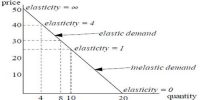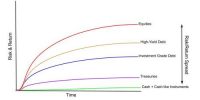Capital markets typically involve issuing instruments such as stocks and bonds for the medium-term and long-term. A perfect market is a market in which there are never any arbitrage opportunities. Perfect Capital markets have numerous participants including individual investors, institutional investors such as pension funds and mutual funds, municipalities and governments, companies and organizations, and banks and financial institutions.
A market in which there are never any arbitrage opportunities. A market is said to be a perfect capital market if holds the following assumptions (Farna and Miller 1972):
a) There are no transactions costs.
b) There are no taxes.
c) There are a large number of buyers and sellers, so the actions of no one buyer or seller affect the price of the traded security.
d) Both individuals and firms have equal access to the market.
e) There is no cost to obtain information, so everybody has the same information.
f) Everyone has the same expectations.
g) There are no costs associated with financial distress.
Nowadays, financial decision making has a fairly common coverage of theories and models. In addition to such Nobel winning theories as the Portfolio Theory, the M & M Irrelevance Theorems; the Capital Asset Pricing Model, and the Option Pricing Models, other theoretical works such as the Efficient Market Theory, the Dividend Discount Model, and the theories about agency costs and information signaling are common the field of modem financial decision making.
Typically we say that all theories based on a set of assumptions and they may be sometimes crucial unrealistic also. Assumptions hold under the perfect capital market or in most of the cases the fundamental pillars for the development of other finance theories At the end, we can say that capital market assumptions are the guiding principle based on which most of the finance theories.
















